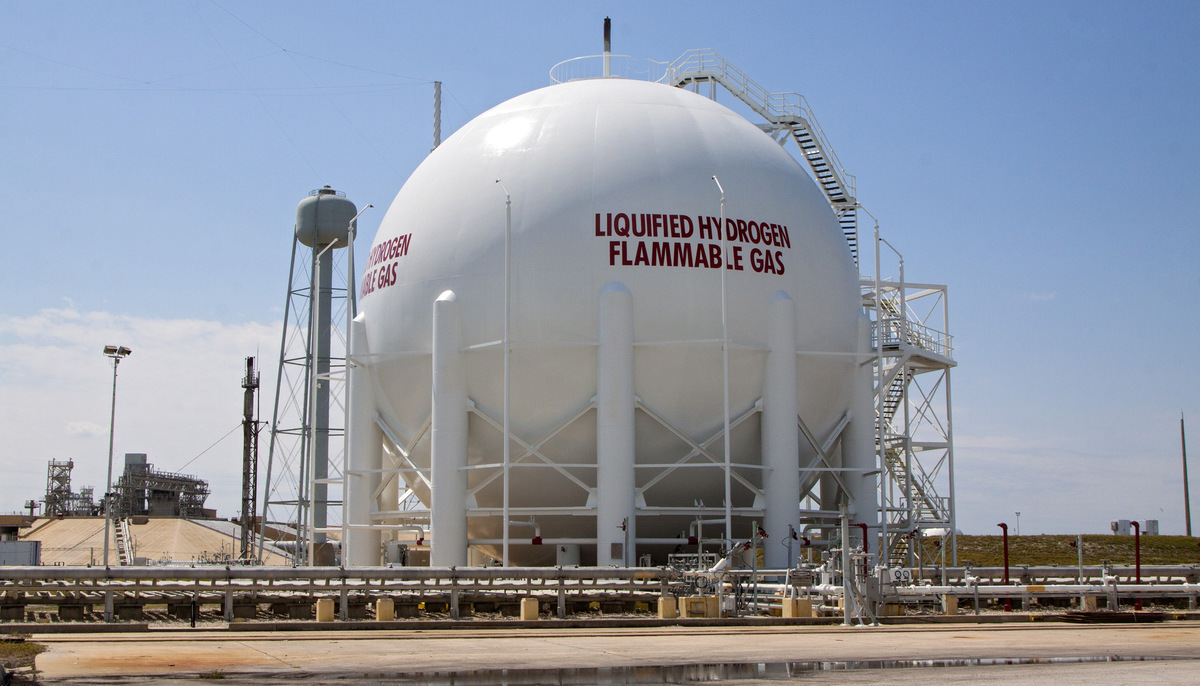The Week in Alternative Fuels
Here are some key developments in alternative bunker fuels from the past week.
 PHOTO: Liquefied hydrogen storage tank. NASA
PHOTO: Liquefied hydrogen storage tank. NASA
Hydrogen was the hot topic, with several production and supply chain announcements. They illustrate hydrogen's growing potential as a future energy source and as a feedstock for production of derivative fuels such as ammonia and synthetic methanol or methane.
Hydrogen is seen as a viable alternative to fossil fuels as it emits zero emissions if produced via electrolysis using renewable energy. There is, however, always the risk that the hydrogen produced is not zero-carbon, which requires greater oversight to ensure that hydrogen is indeed environmentally friendly.
Shipping classification society Bureau Veritas (BV) has launched a green hydrogen certification scheme to “ensure that hydrogen is produced under safe and sustainable practices, and from renewable energy.” In order to qualify for the certificate, BV says the hydrogen produced must have a carbon footprint below 2 kg CO2-equivalent/kg of hydrogen.
The growing demand for green marine fuels underscores the need to scale up hydrogen production. Several nations and companies are working on addressing this pressing issue.
Portuguese utility firm EDP and Spanish refiner Cepsa have collaborated to develop a green hydrogen production plant with 1 gigawatt (GW) electrolysis capacity in Algeciras. The hydrogen could go towards producing marine fuels and to power generation.
The Clean Hydrogen Partnership – a public-private undertaking that supports research, development, and deployment of hydrogen technologies across the EU – will fund so-called Hydrogen Valley projects with a combined €105.4 million ($115 million). Selected projects will produce green hydrogen for transport, industry and other sectors.
Saudi Arabia plans to invest around 1 trillion riyals ($266 billion) to produce and export clean hydrogen, according to Reuters. The investment will also be directed towards improving supply infrastructure, such as adding distribution and transport lines.
As hydrogen has a low volumetric energy density and requires specialised tanks holding cryogenic temperatures, it is expensive to store and transport. Japanese petroleum company ENEOS has built a test unit in Australia for producing a liquid organic hydrogen carrier called methylcyclohexane (MCH). It says MCH will allow hydrogen to be stored efficiently during transportation with minimal boil-off losses.
By Konica Bhatt
Here is our selection of five top alternative fuels stories from this week:
Bureau Veritas launches renewable hydrogen certification scheme
Cepsa and EDP identify shipping demand in green hydrogen production plans
Saudi Arabia to invest over $200 billion in clean energy – Reuters
Clean Hydrogen Partnership to invest €105 million in European Hydrogen Valley projects
ENEOS builds test unit for a hydrogen carrier production in Australia






